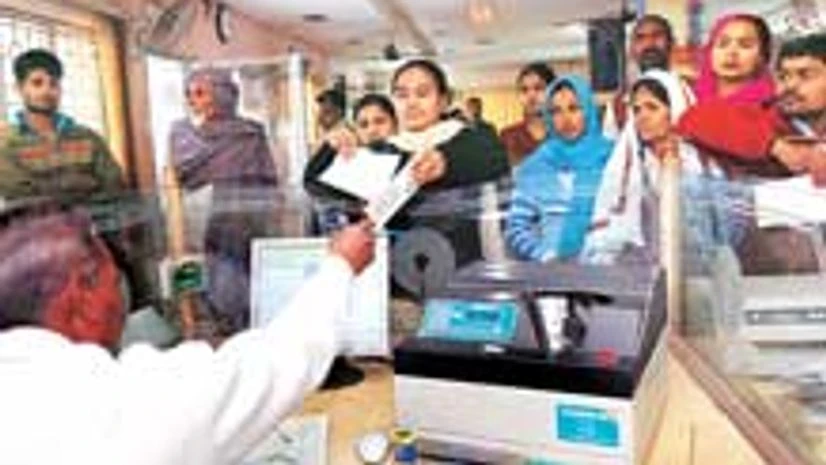Bank employee unions have called off a planned four-day strike after agreeing to a 15 per cent wage increase and two more holidays a month – the second and fourth Saturdays, a senior union official said on Monday.
But other Saturdays in a month will be working, the union official said. A formal approval from the government and the regulator might be required for effecting changes in the working schedule.
The annual wage bill (at 15 per cent rate) works out to Rs 4,725 crore for banks. This will be a five-year wage pact running from November 1, 2012 to October 30, 2017. At base level, the wage bill burden for five years would be over Rs 23,600 crore. The actual bill would be more, “as the cost of medical, hospitalisation scheme, other items, superannuation, provident fund, gratuity and pension is being worked out separately”, said Vishwas Utagi, convener, (Maharashtra), United Forum of Bank Unions.
The process of wage negotiations started after the unions submitted their charter of demands in October 2012. They demanded broadly a 25-per cent hike before settling for a 15-per cent rise.
In the last round of wage settlements, the employees received 17.5 per cent hike that included pension and other retirement benefits also.
The bank managements offered a 5-per cent hike at start and raised gradually through negotiations to settle at 15 per cent. Unlike previous wage negotiations, banks are better prepared this time around. Banks have been making provisions in books assuming a 13-15 per cent annual hike in wages. Banks began making provisions from 2012-13.
The distribution of annual wage increase between workmen unions and officers’ association will be worked out separately based on break-up of establishment.
“As per the agreement, the second and fourth Saturdays of every month will be holidays and the remaining Saturdays will be full working days,” IBA said. The details of the bipartite settlement will be worked out in the next 90 days.
Banks would start distributing arrears soon.
But other Saturdays in a month will be working, the union official said. A formal approval from the government and the regulator might be required for effecting changes in the working schedule.
The annual wage bill (at 15 per cent rate) works out to Rs 4,725 crore for banks. This will be a five-year wage pact running from November 1, 2012 to October 30, 2017. At base level, the wage bill burden for five years would be over Rs 23,600 crore. The actual bill would be more, “as the cost of medical, hospitalisation scheme, other items, superannuation, provident fund, gratuity and pension is being worked out separately”, said Vishwas Utagi, convener, (Maharashtra), United Forum of Bank Unions.
The process of wage negotiations started after the unions submitted their charter of demands in October 2012. They demanded broadly a 25-per cent hike before settling for a 15-per cent rise.
In the last round of wage settlements, the employees received 17.5 per cent hike that included pension and other retirement benefits also.
The bank managements offered a 5-per cent hike at start and raised gradually through negotiations to settle at 15 per cent. Unlike previous wage negotiations, banks are better prepared this time around. Banks have been making provisions in books assuming a 13-15 per cent annual hike in wages. Banks began making provisions from 2012-13.
The distribution of annual wage increase between workmen unions and officers’ association will be worked out separately based on break-up of establishment.
“As per the agreement, the second and fourth Saturdays of every month will be holidays and the remaining Saturdays will be full working days,” IBA said. The details of the bipartite settlement will be worked out in the next 90 days.
Banks would start distributing arrears soon.

)
